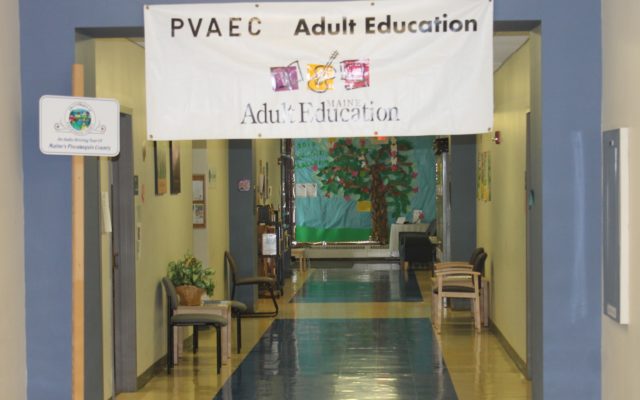
We can fight the opioid crisis by creating connections, opportunities and hope
Hope and connections. Today, they’re needed more than ever, but often seem distant and out of reach in this uncertain time. For individuals in recovery from substance use disorder, hope and connections can make the difference between stability and relapse; between health and overdose. For some, it’s a matter of life and death.
September is National Recovery Month. It’s never been more important. As a result of the coronavirus and the way it’s changed our lives and society, the opioid crisis is intensifying across Maine and throughout the nation. Deaths from overdose are on pace to set another tragic record. They declined for the first time in 2018, but rose again last year and are now hitting new highs.
It’s a drug epidemic wrapped in a health pandemic. It’s an emergency we can’t relegated to the back burner. The BDN made this crucial point in its Aug. 30 editorial, “Maine’s other pandemic — drug overdose deaths — needs urgent attention.”
Sadly, COVID-19 arrived at a time when the Maine state government and other stakeholders in the opioid battle had made substantial strides in raising public awareness, developing partnership, galvanizing support for innovative strategies and leveraging resources.
Creation of the Governor’s Office on Opioid Response elevated this seemingly intractable problem to its necessary place of prominence on the public policy agenda. Medicaid expansion opened doors of substance use disorder treatment facilities and mental health clinics to thousands of individuals who had been unable to access counseling and medication. The state’s emphasis on training recovery coaches and distributing life-saving naloxone are essential actions to prevent needless deaths and give many Mainers a future.
Yet more is needed, so additional work is underway. Last summer, the Maine Department of Labor approached Eastern Maine Development Corp. to collaborate in writing a grant proposal. seeking emergency relief from the U.S. Department of Labor to fight the opioid crisis. Earlier this year, Maine was awarded $6.2 million to target communities most harmed and change the trajectory of many lives.
In this case, the focus is on opening doors to education, training and employment — to bring greater stability and added purpose to life. With funding secured and collaborations with Maine’s Northeastern Workforce Development Board, as well as other stakeholders and businesses, the state’s Connecting with Opportunities Initiative launched earlier this summer. The goal is to serve nearly 700 individuals and bolster the workforce needed to address the crisis.
Through this effort, emergency relief jobs called “peer connectors” have been created to assist initiative participants. Peers are individuals in recovery. Their one-on-one support will be a key to success for many participants. Peers offer guidance, encouragement and a guiding hand in overcoming obstacles on the journey to meaningful employment. In addition to a Peer Connector, each participant benefits from a workforce development specialist with expertise in career planning.
Significant financial support is available to those who participate. It can be used for education, training programs and employment preparation. Importantly, supportive services are also available to make sure challenges don’t derail the process. Funding can meet transportation, child care, technology, emergency housing and other life needs.
And though Maine’s Connecting with Opportunities Initiative targets people who’ve been impacted by opioid use disorder (directly or indirectly), it’s also open to unemployed workers who haven’t been impacted but wish to enter a field that serves to diminish the crisis, such as drug counseling, recovery coaching or mental health care.
To serve the greatest number of people, EMDC is seeking partnerships with community organizations, businesses, professional groups and non-profit agencies. And we’re encouraging referrals of people who could benefit from this promising effort. To request more information, to schedule a presentation for your organization or to make a referral, please email Doug Dunbar (ddunbar@emdc.org) or call (207) 299-5626.
Hope and connections. They make an enormous difference. Our endeavor is to have hope and connections create positive outcomes for all. Join us in this Connecting with Opportunities work and give hope to individuals and families across Maine.
Lee Umphrey is president and CEO of Eastern Maine Development Corp. Doug Dunbar is EMDC’s recovery and re-entry workforce specialist.